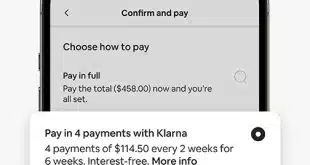MasterCard Inc. chief executive Ajay Banga on Wednesday downplayed the company’s controversial digital-wallet fee and said critics had been generating the “wrong noise” about the pending fee. Banga’s comments came during the No. 2 payment card network’s first-quarter conference call with analysts, when Banga also said U.S. consumer spending on MasterCard cards lagged international spending as higher payroll taxes and storms at the tail end of winter undermined consumer confidence.
MasterCard plans to begin assessing the digital-wallet fee in June on wallet providers such as PayPal Inc. PayPal’s parent company, eBay Inc., first revealed the fee two months ago in a regulatory filing. Dubbed the “Staged Digital-Wallet Operator Annual Network Access Fee,” the charge would apply when a PayPal purchase is funded by a MasterCard card, and would be tiered based on volume. EBay provided few details about the fee but said it could have an undetermined effect on PayPal’s expenses.
News of the fee caused some observers to wonder if MasterCard perceives digital-wallet providers as competitors and is trying to squeeze them with the new fee. Such providers, of which PayPal is the biggest, enable their users to fund purchases by tapping general-purpose card accounts linked to the wallets. Banga shed little new light on the fee when an analyst asked about it during the earnings call. He did, however, take issue with what he called the “noise” about the fee that focused on how it would affect the financial results of MasterCard and wallet operators.
“I think that is completely the wrong noise,” Banga said, according to a transcript of the call from the Morningstar financial-information service. He said the fee would generate “a relatively de minimis number for a company of our size and scope.” He went on to say that “it is more about the principles of creating the right rules and the right operating methodology to allow us to operate with … digital-wallet operators.”
Regarding purchase volumes, Banga said that while consumer spending initially rebounded from a weak holiday season, it “started to cool in February as consumers adjusted to higher payroll taxes, some inflation in food and gas prices, as well as the effects of the late-season winter storms in March.” As a result, U.S. retail sales grew only 2.6% in the first quarter, ended March 31, compared to 3.9% in 2012’s fourth quarter and 7.4% in the year-ago quarter.
Debit card charge volume growth continued to slow during the quarter. MasterCard’s U.S. debit purchase volume rose 7% to $119 billion, up from $111 billion a year earlier. That compares to an 11% growth rate in 2012’s fourth quarter, 13% in 2012’s second and third quarters, and 19% in 2012’s first quarter. U.S. debit transaction volume rose to 2.9 billion in the first quarter, up 7.4% from 2.7 billion a year earlier.
MasterCard’s U.S. credit card purchase volume rose 2.4% to $127 billion in the quarter, from $124 billion in 2012’s first quarter. U.S. credit transaction volume totaled 1.4 billion, down slightly from 1.5 billion a year earlier.
Banga said that MasterCard is working to expand U.S. consumer credit by adding new programs, such as Bank of America Corp.’s new Better Balance Rewards credit card, which gives cardholders cash back for responsible payment practices. “This is the first Bank of America product that is exclusive to us at MasterCard,” he said.
Total transaction volume on MasterCard’s worldwide network was 10.2 billion, up 9.6% from 9.3 billion a year earlier.
For the quarter, MasterCard reported net income of $766 million, up 12% from $682 million in 2012’s first quarter. Net revenue grew 8% to $1.9 billion from $1.76 billion a year earlier.






